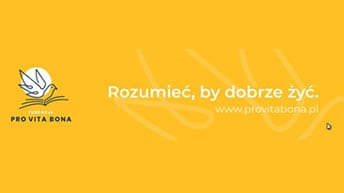Introduction
The principal aim of this text is the presentation of Polish point of view about John Paul II and his theological-political project of Europe. It’s not any juridical and political project, with the multitude of detailed solutions, precepts of laws, constitutions, institutions, etc. John Paul II is not jurist or politician. He was the author of great project of reconciliation and reestablishment of the unity of Europe based on cultural and intellectual community. The Polish Pope is professor of ethics, catholic philosopher, visionary, perhaps prophet of cultural and intellectual future of our Continent, but not the constructor of political institutions.

The main source for us is the encyclical “Fides et ratio”, Faith and Reason, from 1998,accessible on-line in different languages, on the official website of the Vatican. I want encourage my Readers to read this text, and meditate on its philosophical content. This text can be read non only as religious Catholic small book, but as a philosophical project, created against the modern Western rationalism, liberal and postmodernist conception of being. The text goes to the essence of the human person, beyond contemporary culture and mode of life. It’s a metahistorical conception of rationality and religiosity of human person, accessible to every Christian people, irrespective of different Christian confessions.
In my text I don’t wish to present every aspect of the encyclical “Fides et Ratio”. I omit a multitude of detailed, historical aspects of this text, history of reconciliation of ancient Greek rational philosophy with Christian faith, history of great Fathers of Church in Antiquity, medieval Doctors and Councils, history of translations of the “Metaphysis” of Aristotle from Greek or Arabic to Latin language. John Paul II presents this history in short words, and presents it as a great Catholic Tradition, as the intellectual constitution of the West. We have in this encyclical the great name of Father of byzantine Church Origen, and common Father of every Christian and every theological movement in history: St. Augustine of Hippone[1].

Problem of Aristotle and Great Schism od 1054
John Paul II makes clear the idea, that the Christianization of the Roman Empire was not possible without rational arguments based of philosophy. The Hellenistic world is founded on the thoughtof Plato and Aristotle, and it was not possible to speak to their contemporaries, to ancient social and political elites without utilizing this narrative. The Christian Gospel without rational arguments is not persuasive. The philosophy has a didactic element. It’s important that this philosophy is interesting in itself. The great force of persuasion of this narrative was based on the idea of God, of Creator of the World and man. Why? Because great Greek philosophersteach us, that the essence of world is profoundly rational. World is described in mathematical symbols. Is rational. And a rational thing must be created by rational Creator. The first todeduce transcendency from this mode of rationality was the great pre-Socratic philosopher Parmenides. The Creator is the idea of Good from Plato’s Allegory of the Cave and Aristotle’s First Cause. It’s simply God for Christians. It’s the mode of religious persuasion transmitted by the first Christians to the educated elites of Greek and Rome. From the classical Jesuit theology[2] we find that question of faith pertains only to the idea that it is Christian revelation only, which is true in the religious sense and that fundamental truthis the essence of teaching of Saint Paul: “Jesus is the Christ”, Jesus is Messiah, Jesus is resurrected!
The rational thought is lost in the period of “obscure centuries” (as this epoch is called by our western historians), in the time of the end and collapse of ancient Rome. The great tracts of Aristotle were only available only in Greek language, inaccessible to the Europeans of the West. In this time the contacts with Christian East are in crisis. As a result, the Europeans lose contact with the Aristotelian tradition.
In the 13thcentury we have in Europe the great rediscovery of classic rationalism, thanks to a multitude of translations from Arabic and Greek[3]. At this moment I want to emphasizethe historical role of the Great Schism of 1054. It’s the definitive cultural, institutional and confessional break between West and East. This separation occurs before the rediscovery of Aristotle at the University of Paris[4]. It’s decisive fact to understand the intellectual relations and misinterpretations of Catholic and Orthodox in the following centuries. The West is opened to rationalism, by the influence of rational philosophy. At the same time the Orthodox world is closed off from this intellectual tradition. The difference is greater with every passing century. We become two closed worlds in the realm of communication, two strange worlds, perhaps just as in the contemporary science-fictions films about the contacts of people with Aliens.
Western Civilization discovers the world by way of rationalism. Human reason comes to know the natural and material worlds: nature, natural law, policy, state, law and rights. In this context the Faith is only an addition. And, vice versa, in the domain of religion, the Faith is prevalent and Reason is only an addition. In the sphere of religion, Faith points to the aims, while reason has is only an addition. Reason explains the truths of faith, Revelation. Reason translates into practice the letter of Scripture, Tradition, Canon Law. It’s only a tool for the Church and Her Faith.
I’m not a specialist in the history of Orthodox faith and Church – my research speciality is Western European political tradition – but in ourcurrently interpretations the Orthodox Church is characterized as fideistic and mystic. Is characterized as indisposed to religious rationalism[5]. It’s the legacy of the Great Schism and a lack of reception of Aristotelianism.

Great polemic with Modernity
The second theme of “Fides et Ratio” is the great polemic with Modernity, i.e. the great disputation inside the Western world about its true intellectual tradition. The mains themes of this encyclical are developed by Pope Benedict XVI in his later encyclical “Spe salvi”[6]. John Paul II points out, the aim of the reception of Rationalism in West is the strengthening of the Faith and explication of theology by way of Reason[7].
Unfortunately, this newly discovered rationality on the part of the theologians is emancipated from the authority of the Church and obligations to the Christian faith. The era of this great rebellion occurs during the European Enlightenment. It is a time of emancipation of Man from the Church, Faith in God, Tradition, traditional authorities of State, monarchy and elites. It ‘is the apocalyptic time of “egofany” (expression of Eric Voegelin[8]), or a time of “sovereignty of Man” in the place of sovereignty of God (expression of father Felicité La Mannais)[9]. The encyclical of John Paul II is a polemic with a concept of self-understanding of Western Man. The Pope presents an alternative and original version mode of this understanding. It does not take the form of conflict between Reason and the Christian faith, but a strict collaboration and obedience, as in the Scholastic model.
It’s an important question. I don’t know how is Georgian view of Western culture. I suppose that in the meaning of common people, it’s taken from TV, where we have the supremacy of liberal model of emancipated man, free from traditional obligations to God, Nation and Tradition. Perhaps Georgian liberalism is different from German, English, French or Polish. But, in this case, it’s only a question of time. Liberalism is the same the world over. It’s vision of man who is created as free, with natural rights, in the natural state of political, ethical and cultural pluralism. From the Catholic point of view, it’s a nihilistic vision of life and society. Liberalism does not constitute a society, in the meaning of community. It’s only free association of individuals. The mob of lonely egoists!
In the pages of “Fides et Ratio”,John Paul II presents the crisis of Western rationalism as four form of degeneration:
1/ As eclecticism of different ideas and intellectual movements, which do not constitute a great whole.
2/ Historicism. It’s the German idea that every truth is true only at a certain time, in specific place and era, because the truth is changeable with culture and development.
3/ Scientism, or the thought that modern science is able to resolve every question, and religious faith is impotent.
4/ Pragmatism, or statement that the truth is not important, which leads to quarrels and wars. The only thing that counts is the social agreement about conventional truths[10].
The effect of the fourth faults is the contemporary anti-philosophy of postmodernism characterised by the negation and annihilation of any notion of truth. It signifies the deconstruction of every rational meaning and notion; theend of the history of human mind. The ultimate degree of human auto-annihilation. The only visible effect of postmodernism is the era of great and universal scepticism.
For the Polish Pope, or every traditional Catholic and, I suppose – for every traditional Christian without difference of confession – the postmodern culture is one great tragedy, and full of intellectual faults. Postmodernism is the effect of three great rebellions of Western history againstTradition:
1/ I ‘mean the break of the Reformation with the authority of Church in light of “libre examen”, individual examination of religious truths.
2/ Break of Enlightenment and French Revolution with authority of classical state;
3/ Break of Marxism with religion, state and property[11].
Postmodernismis simply the result of three great negations.

Appeal to World of Orthodoxy
Perhaps you might want to ask the question: why is this lecture being given in Georgia? What is the connection between John Paul II and Georgia and Georgian problems, with the people of Orthodox majority? It’s simple: Orthodox Church is the theme of many considerations in the thought of John Paul II[12]. In the ideas of Polish Pope we find his beloved thought that Christianity has “two lungs”: Western (rational) and Eastern (fideist).
In the considerations of Roman Pope, both “lungs” are the Achilles’ heel, weak points: in the West it’s the victory of false anthropocentric rationalism of Enlightenment over Christian rationalism of scholasticism and Neo-Scholasticism. In the case of Orthodoxy it’s the other extremity, or lack of rational way of discovery of religious faith. In the West we have the negation of faith, and at the same time, in the East, misinterpretation of reason and itsimportance to theological conclusions. The West is rationalistic, and East is fideist. These two extremes are insufficient, inconclusive. Western tradition has abandoned idea of God, and Eastern tradition has stopped the development of theological aims. An Orthodox priest from Russia told me, that the cause of the Bolsheviks’ victory over the Orthodox Church was easy, because in Orthodoxy we have not any profound intellectual background. Christianity, for Russians, is only liturgy and churchmen. Stalin abolished or closed the churches, and intwo years the Orthodox people were almost nowhere to be seen.
The main aim of John Paul II , during his time of his reign as Bishop of Rome, is the reconciliation between Catholic and Orthodox churches. It’s his personal idea to create a great synthesis between Western rationality and Eastern fideism[13]. From a historic point of view, we can make a supposition, that it is an attempt to remake again the constitutive element of Thomism – and John Paul II was a Thomist – thegreat synthesis between Reason and Faith. However, this time it’s the West that is the source of Rationalism and Aristotelian tradition, and not the Arabic world. This time around, it is East that is the importer of Classical wisdom, as the West was seven centuries ago. The aim is the unification of Eastern faith in the spirit of Saint Paul and Western reason of Aristotle.
In this proposition,the Polish Pope had a great gift from the Catholic to the Orthodox church: Reason developed in theology. What the East, what Georgia, can give to the world is the living Faith from orthodox. For the Orthodox world pure Rationalism from the West is very dangerous. We have one such example of radical rationalism, imported from the West, free of God and faith, from West to you: it’s called Marxism.
Adam Wielomski
Jest to treść wykładu wygłoszonego w dniu 15.10.2019 w Sulkhan-Saba Orbeliani University w Tbilisi (Gruzja)
[1] John Paul II, Fides et Ratio, Kraków 1998, points 15, 37, 39-40.
[2] C. Passaglia, Katolische Lehrvorträge, Regensburg 1853 [1851], p. 139-53; G. Perrone, Le Protestantisme et la règle de foi, Paris 1854, Vol. I, p. 58, Vol. II, p. 396-99; J. Kleutgen, Die Theologie der Vorzeit, Münster 1860, p. 289-544.
[3] S. Gougenheim, Aristote au Mont Saint-Michel. Les racines grecques de l’Europe chrétienne, Paris 2008, p. 103-124.
[4] E. Gilson, Historia filozofii chrześcijańskiej w wiekach średnich, Warszawa 1987, p. 215-384; F. van Steenberghen, Filozofia w XIII wieku, Lublin 2005, p. 103-149.
[5] T. Spidlik, I. Gargano, Duchowość ojców greckich i wschodnich, Kraków 1997; J. Meyendorff, Teologia bizantyjska. Historia i doktryna, Kraków 2007.
[6] A. Wielomski, Spe Salvi w perspektywie filozofii politycvznej, w: J. Ćwikła (ed.), Benedykt XVI. Próba podsumowania pontyfikatu, Radzymin 2013, p. 17-40.
[7] John Paul II, Fides et Ratio, op.cit., points 16-35.
[8] E. Voegelin, Order and History, Vol. IV, The Ecumenic Age, Baton Rouge 1974, p. 260.
[9] F. de La Mennais, Réflexions sur l’état de l’église en France, Paris 1825 [1808], p. 138.
[10] John Paul II, Fides et Ratio, op.cit., points 85-90.
[11]M. Przeciszewski, Jana Pawła II Europa dwóch płuc, https://ekai.pl/jana-pawla-ii-europa-dwoch-pluc/
[12] M. Foks, Jan Paweł II wobec prawosławia, https://www.centrumjp2.pl/papiez-wobec-prawoslawia/; Dialog Jana Pawła II z prawosławiem, https://deon.pl/wiara/dialog-jana-pawla-ii-z-prawoslawiem,56871
[13] W. Zyzak, Święty Jan Paweł II o duchowości chrześcijańskiego wschodu, „Polonia Sacra”, 2017, 21, 1/46, p. 175-179.



